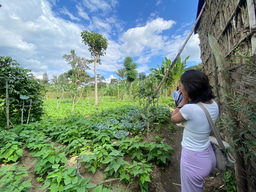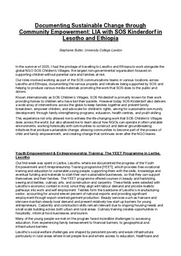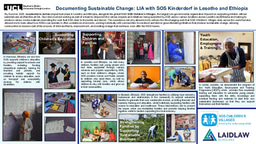Project Overview: The Influence of Class on Experiences of Imposter Syndrome at Durham University
Elitism and Isolation: The Influence of Class on Experiences of Imposter Syndrome at Durham University
Supervised by Prof. Vikki Boliver and Dr Michelle Addison, Durham University.
Imposter Syndrome
Imposter syndrome can roughly be defined as a "perceived fraudulence" (Kolligian Jr. and Sternberg, 1991) in which an individual doubts their abilities and achievements compared to others in a given environment, such as a workplace or a place of education, leading them to believe that they are an 'imposter'. The term 'imposter syndrome' originated as a psychological label applied to particular individuals, such as highly ambitious, neurotic personality types, but recent research has shifted away from this definition to reconceptualise the phenomena not as a personality disorder (Mak, Kelitman and Abbot, 2019) but as systemic issue frequently experienced by a large range of people. Several factors have been suggested to manifest imposter syndrome, such as gender, race, and class.
Bathmaker, Ingram and Waller (2013), in particular, established that, despite the widening access to university since the start of the 21st century in Britain, more economically privileged students display a better propensity at ‘playing the game’ of academia by knowing the ‘rules of the game’ and how to achieve success in university by drawing upon knowledge exclusive to the middle-class from their pre-university experiences and social milieu.
Similarly, Addison and Stephens Griffin (2022) demonstrated how structural inequalities impact university students' academic engagement, mental health and sense of belonging, but argue that more evidence is needed to create a thorough understanding of the systemic dimension of imposter syndrome in the British Higher Education system.
Durham University
Durham University is often recognised as the third-oldest university in England behind Oxford and Cambridge. It is seen as one of the country’s most prestigious, currently being ranked 78th globally (QS World University Rankings, 2024) and 7th out of 130 universities nationally (Complete University Guide, 2024). The University has experienced a long history of controversy surrounding claims of classist discrimination (Askham, 2021) and is rated as the worst institution for social inclusion in England and Wales, likely since it has the the lowest state-school intake out of any other UK university (Mohamed and Hodgson, 2022). Despite these facts, there has been little to no academic research into class at Durham University.
Durham University & Imposter Syndrome
The main aim of this project is to contribute to the work demonstrating how imposter syndrome is a systemic issue and not solely an individual phenomenon. In particular, it recognises that more research is needed to create an understanding of how structural inequality influences personal experiences in the British Higher Education system. Due to the unique position of Durham University, my project utilises the university as a case study investigating systemic class issues in HE and to what extent such inequalities manifest imposter syndrome. Data from a survey (n=~704) conducted at Durham University was used to analyse the primary research question: what impact does class have on experiences of imposter syndrome at Durham University?
References:
Addison, M., & Stephens Griffin, N. (2022). The Canary in the Coalmine: The Impact of Imposter Syndrome on Students’ Learning Experience at University. The Palgrave Handbook of Imposter Syndrome in Higher Education, 107–123. https://doi.org/10.1007/978-3-030-86570-2_7
Askham, P. (2021, April 17). Working-class Durham students speak out about discrimination in live-stream event. Palatinate. https://www.palatinate.org.uk/working-class-durham-students-speak-out-about-discrimination-in-live-stream-event/
Bathmaker, A.-M., Ingram, N., & Waller, R. (2013). Higher education, Social Class and the Mobilisation of capitals: Recognising and Playing the Game. British Journal of Sociology of Education, 34(5-6), 723–743. https://www.tandfonline.com/doi/full/10.1080/01425692.2013.816041
Complete University Guide. (2024). Top UK University League Tables and Rankings 2024. Thecompleteuniversityguide.co.uk. https://www.thecompleteuniversityguide.co.uk/league-tables/rankings
Kolligian Jr., J., & Sternberg, R. J. (1991). Perceived Fraudulence in Young Adults: Is There an “Imposter Syndrome”?. Journal of Personality Assessment, 56(2), 308–326. https://doi.org/10.1207/s15327752jpa5602_10
Mak, K. K. L., Kleitman, S., & Abbott, M. J. (2019). Impostor Phenomenon Measurement Scales: A Systematic Review. Frontiers in Psychology, 10(671). https://doi.org/10.3389/fpsyg.2019.00671
Mohamed , W., & Hodgson, D. (2022, February 24). Durham has lowest state school intake of any UK university. Palatinate.
QS World University Rankings. (2024, August 29). Top Universities. Top Universities. https://www.topuniversities.com/world-university-rankings/2024?page=5





Please sign in
If you are a registered user on Laidlaw Scholars Network, please sign in